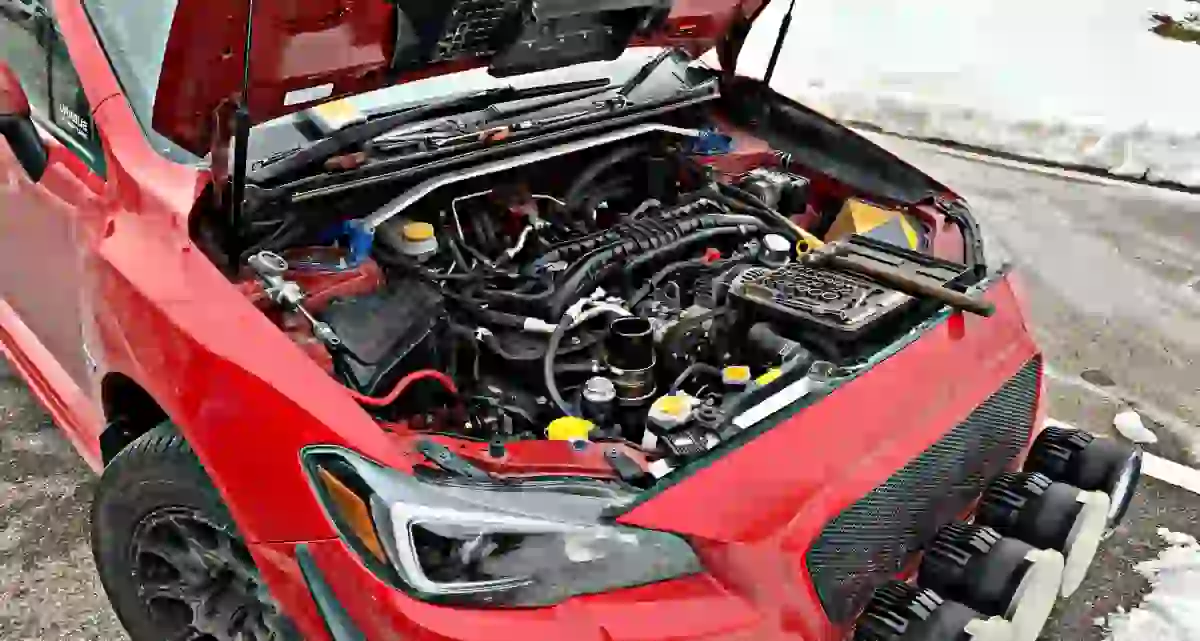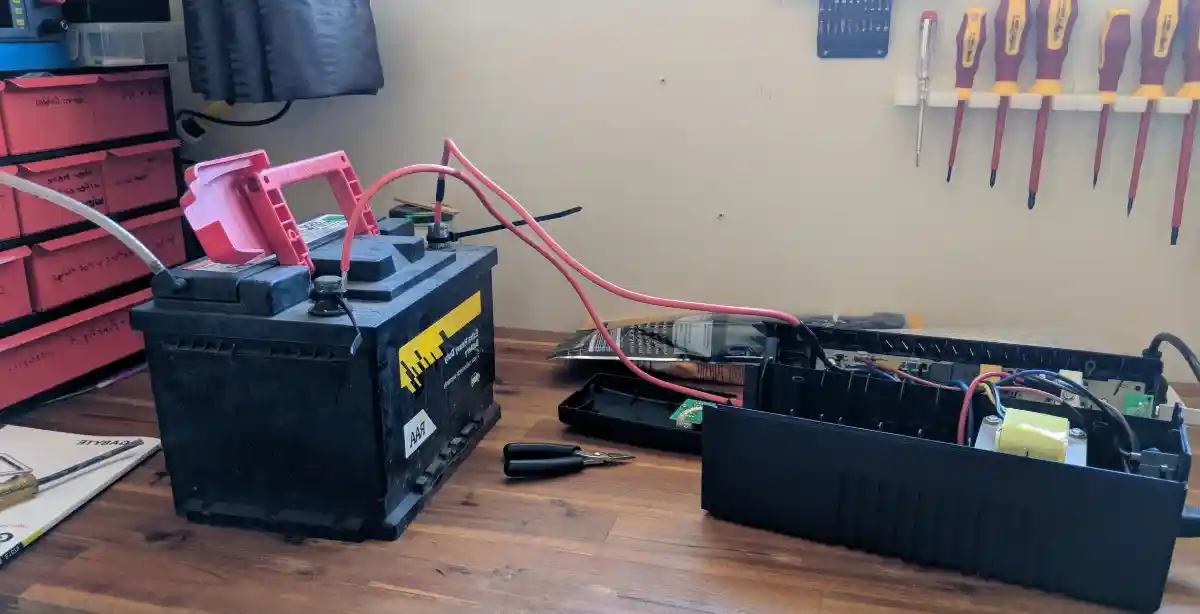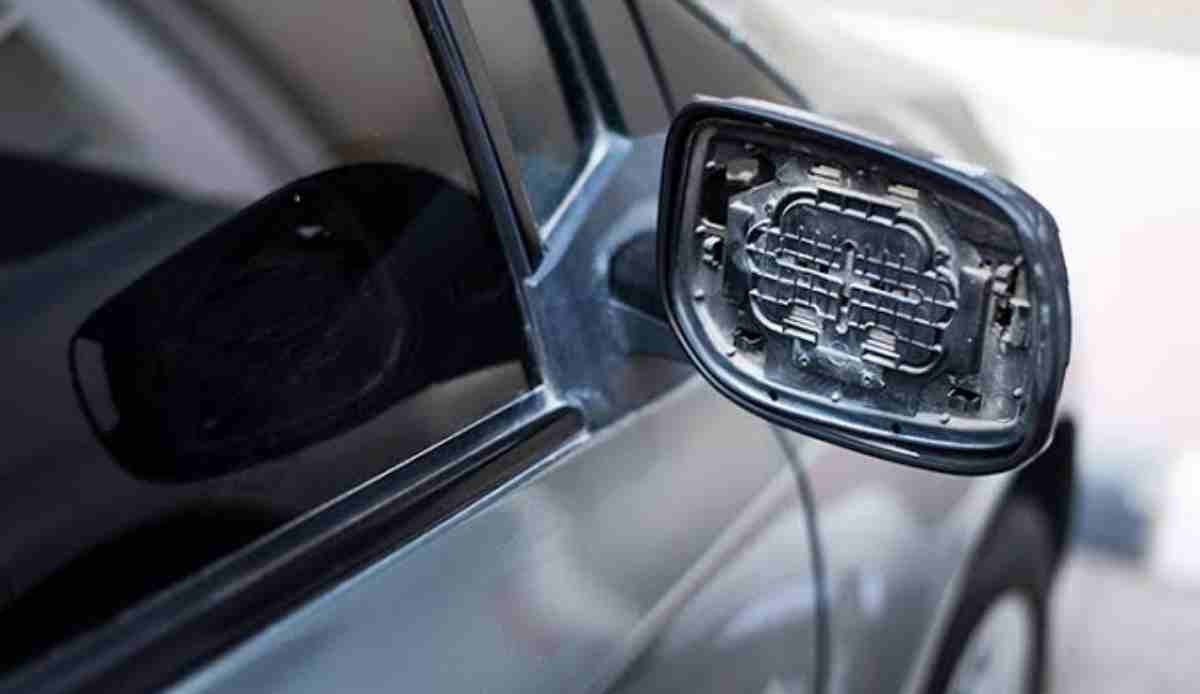Every car with a manual transmission is equipped with a master cylinder that supplies the clutch with hydraulic fluid. It does get faulty, so you should know the common signs of a bad clutch master cylinder which include low or dirty fluid, abnormal pedal behavior, and difficult shifting. You do not want to be stranded on the road due to clutch failure as you will be unable to shift gears.
Signs of a bad clutch master cylinder

There are several signs of a bad clutch master cylinder that you should be aware of. If you experience any of these issues, you should have a diagnostic test performed on your car.
1. Low or leaking transmission fluid
Low transmission fluid level is one of the most prevalent signs of a bad clutch master cylinder. If the transmission fluid level in the clutch fluid reservoir is low, the clutch master cylinder is likely malfunctioning.
Leaking transmission fluid indicates that there is a problem with the clutch master cylinder of your car. If the fluid is leaking from the top of the master cylinder, the seals inside have likely failed and you must replace them. Failure to fix the issue could result in severe transmission damage.
2. Strange noises
There are several reasons why a bad clutch master cylinder can result in unusual engine noises. Air bubbles can form in the clutch lines, causing a knocking sound.
In addition, if the master cylinder is malfunctioning, it may not be able to generate sufficient pressure to force transmission fluid down the lines. This may cause fluid to flow back into the engine, resulting in a loud noise. If your engine is making unusual sounds, you may need to replace the master cylinder.
3. Spongy or soft clutch pedal
The clutch pedal can also feel spongy if the master cylinder cannot generate sufficient pressure to drive the clutch disc against the flywheel. This will prevent the clutch from engaging properly, making shifting gears difficult. In some instances, a bad master cylinder can cause the clutch to completely fail.
4. Unclean clutch fluid
The transmission relies on hydraulic fluid for smooth gear shifting. The fluid runs through the transmission and engine to cool these systems.
If the master cylinder is malfunctioning, it will be unable to generate sufficient pressure to flow fluid through the lines. This can lead to the accumulation of dirt and debris in the system, resulting in transmission failure.
5. Hard clutch
A bad master cylinder can result in a stiff clutch pedal. This is because a bad master cylinder cannot generate sufficient pressure to propel the fluid throughout the system.
This will make the clutch pedal more difficult to depress. If you are having this issue, you must replace the master cylinder immediately.
6. Difficulties shifting gears
If you are having trouble shifting gears in your car, the problem may be a bad master cylinder. In a manual gearbox, the master cylinder is responsible for sending hydraulic pressure to the slave cylinders that operate the clutch. When not functioning properly, it can create gear-shifting issues.
The inability of a bad clutch master cylinder to generate the appropriate pressure to shift gears might lead to problems with gear shifting. This can result in several further issues, including trouble shifting gears, a clutch that slips, and even gearbox failure.
7. Clutch pedal stuck to the floor
A bad clutch master cylinder is one of the potential causes of a clutch pedal that is stuck to the floor. If the master cylinder is leaking fluid, it will be unable to generate sufficient pressure to depress the clutch pedal.
This will result in the pedal remaining in the down position, making it impossible to transfer gears. If you are experiencing this issue, you should inspect and if necessary replace the clutch master cylinder.
8. Your clutch engages at a different point
If the level of your clutch fluid has reduced significantly, your clutch will likely engage at a different point. To release the clutch, you will often need to fully depress the clutch pedal, which is much different from the normal engagement point.
Not only can it alter the engagement point rapidly, but it can do so in a short amount of time as well. That means you might not have any problems on your way home from work, but when you hop in the car the next morning, you might stall it out a few times while you try to figure out what’s going on.
If this is occurring, check your clutch fluid to ensure there is still plenty.
Can you drive with a bad clutch master cylinder?
A bad clutch master cylinder can significantly impair a driver’s ability to operate the car, although the length of time before it becomes unusable depends on the severity of the problem. With a bad clutch master cylinder, however, you should not drive more than a few miles.
If shifting gears is difficult or your car won’t move at all, it’s time to pull over and call for a tow. Continuing to drive with a bad clutch master cylinder might cause additional damage to your car and result in more costly repairs.
How long does a clutch master cylinder last?
There is no conclusive answer to this question because it varies based on the type and model of the car and the individual’s driving behavior. However, a master clutch cylinder can last anywhere between 50,000 and 100,000 miles on average. You want to monitor the condition of your clutch master cylinder and replace it if it shows signs of wear and tear.
You can protect your clutch master cylinder from failing in your own way. Consider the following tips:
- Ensure that the fluid level is correct and that the system has been adequately bled. This will help maintain the seals’ hydration and ensure optimal performance.
- Keep your car with regular inspections and maintenance. Regular maintenance of the clutch system as a whole will assist maintain its functionality. This involves cleaning and lubricating each component as well as replacing any worn parts.
- Utilize quality components and lubricants.
- Drive safely and avoid abrupt acceleration and deceleration.
- Ensure that the clutch pedal is properly adjusted as a further method for preventing breakdowns. If it is too loose, the master cylinder may be forced to work harder than it should, resulting in failure.
If you follow these recommendations, you can prevent a clutch master cylinder failure. If it does occur, you should have your car towed to a certified mechanic.
How can you replace a bad clutch master cylinder?
Repairing the clutch master cylinder is usually quite simple, as well as inexpensive. But you may have to replace it cylinder depending on the condition. Here are the steps for doing so:
- Disconnect the negative cable from the battery.
- Raise the car using a jack and secure it with jack stands.
- Remove the closest wheel from the master cylinder.
- Detach the brake line from the master cylinder and plug the line to avoid fluid leakage.
- Unplug the hydraulic lines from the master cylinder.
- Remove the bolts securing the master cylinder to the car and remove the master cylinder.
- Install and secure the replacement master cylinder using the provided bolts.
- Reconnect the brake line and the hydraulic lines to the master cylinder.
- Reduce the vehicle to the ground and reconnect the negative battery cable.
In most cases, you want a professional mechanic to handle the replacement.
Estimated cost of clutch master cylinder replacement
If you are experiencing clutch troubles, it may be time to replace the clutch master cylinder. If your master cylinder is leaking, not producing sufficient pressure, or otherwise not functioning properly, you should replace it immediately.
The price of replacing your clutch master cylinder will vary based on the brand and model of your car. However, you should anticipate spending between $300 and $400 for it. As it might be a complicated job, it is best to have a qualified mechanic do the replacement.
The cost of the component ranges from $100 to $200. The total expense for a do-it-yourself to replace a clutch master cylinder would be approximately $300. If you do not feel comfortable performing the work yourself, you may expect to pay a professional mechanic approximately $400 for the task.
When the time comes to replace your clutch master cylinder, be sure to account for both the cost of the part and labor. It is vital to be well-prepared for such a challenging task.
Conclusion
A bad clutch master cylinder can result in a variety of car issues. If you experience any of the above signs, you should have it replaced as soon as possible.
Depending on the make and model of your car, you should expect to pay between $300 and $400 to replace your bad clutch master cylinder. Be sure to include this price in your budget, and if you’re uncomfortable performing the repair yourself, take your car to a professional mechanic.
Read also: how mechanics handles engine power reduction

![12 Reasons Car struggles to Start in the Morning [Fixed] 12 Reasons Car struggles to Start in the Morning [Fixed]](https://sanedriver.org/wp-content/uploads/2023/03/PicsArt_03-10-08.07.47.webp)
